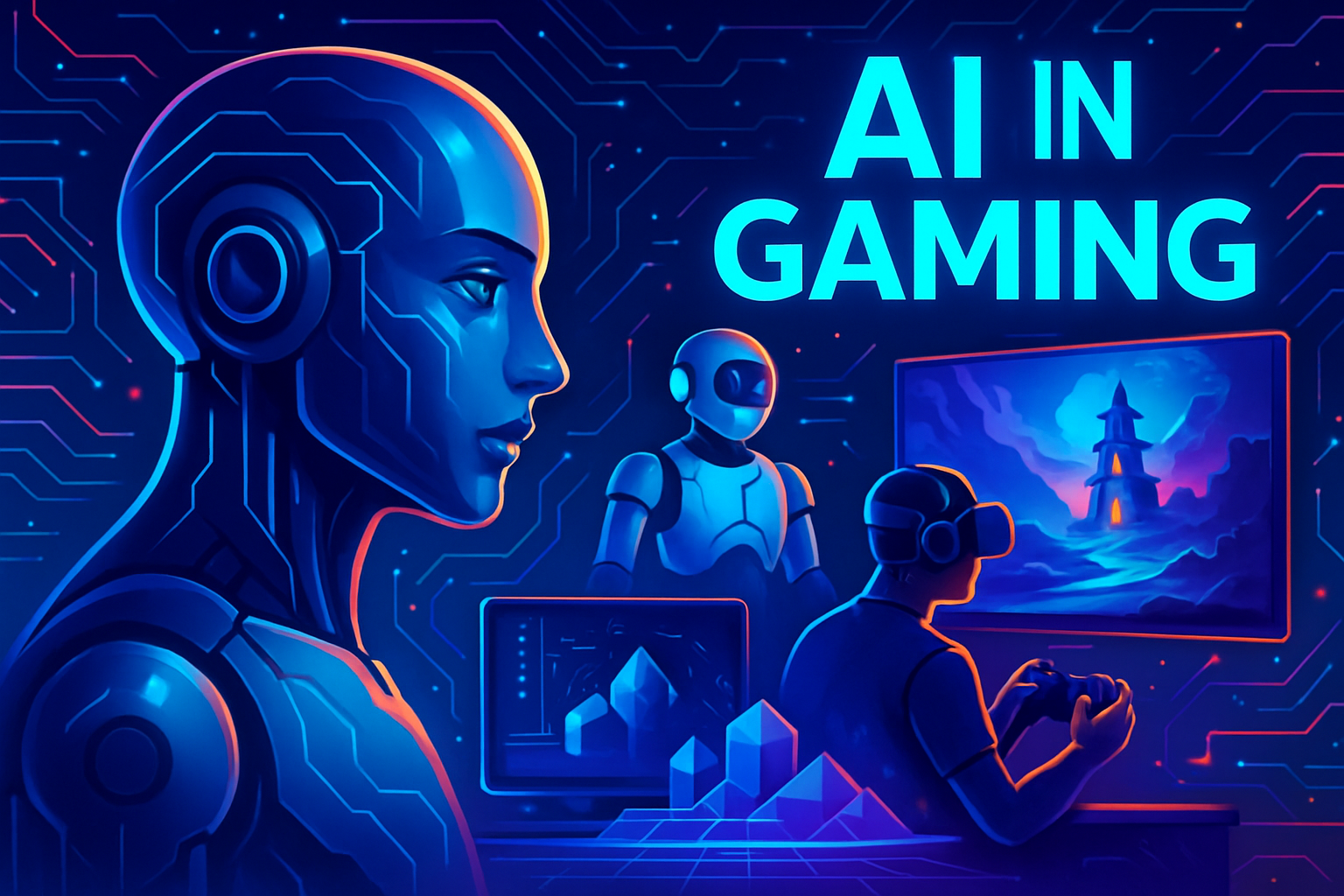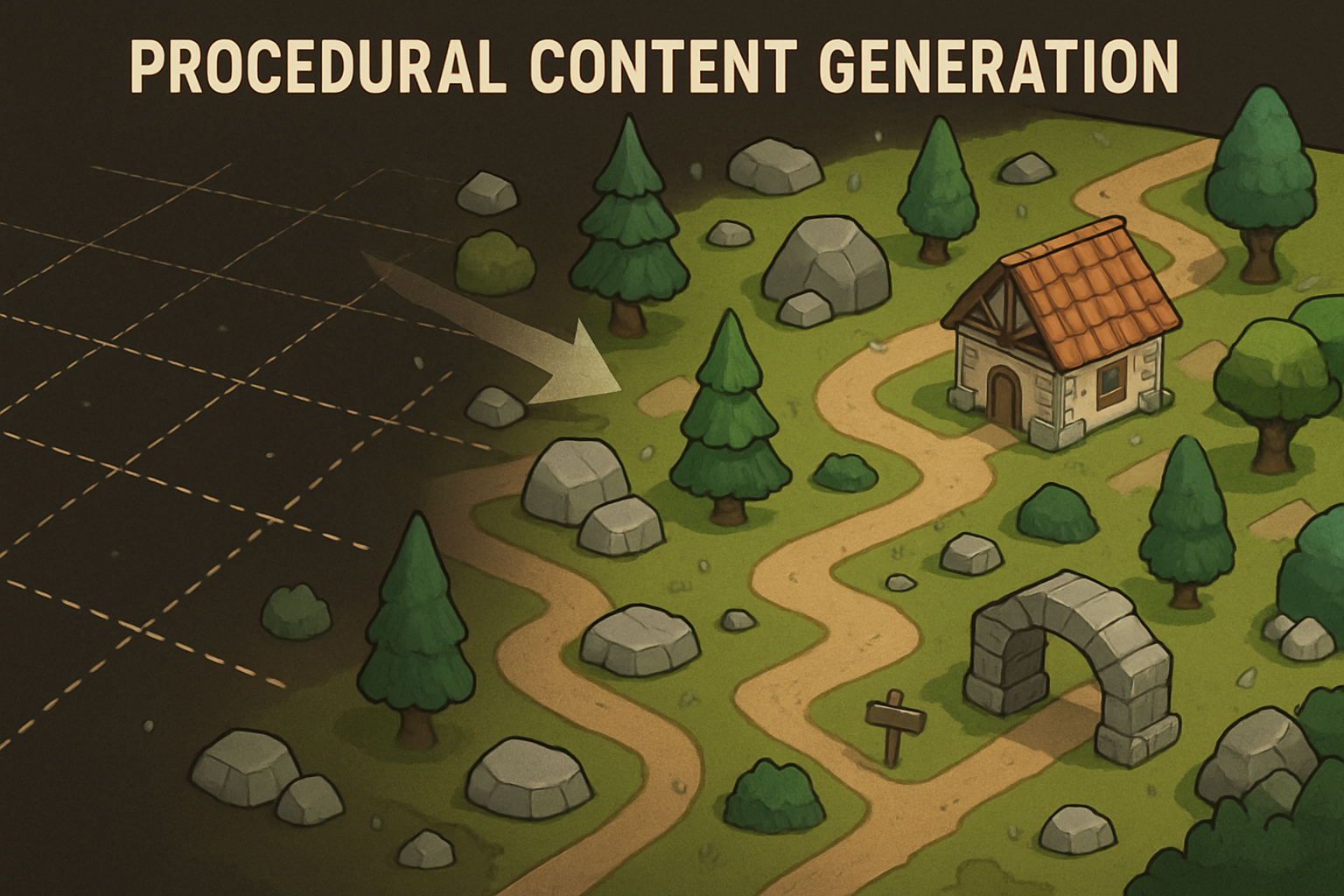
The gaming industry has witnessed tremendous developments over the years, and with the rapid advancement in Artificial Intelligence (AI), these developments have become even more exciting and impactful. AI is no longer just a tool for creating smarter Non-Player Characters (NPCs); it has become a driving force reshaping every aspect of game development and player experience.
In this article, we will explore how AI is revolutionizing the gaming industry, from enhancing graphics and content generation to changing how players interact with virtual worlds, as well as the challenges and future opportunities it presents.
AI in Game Development: From Concept to Reality
AI significantly contributes to streamlining and accelerating the game development process, allowing developers to create more complex and realistic worlds with greater efficiency. Here are some key areas where AI plays a crucial role:
•Procedural Content Generation (PCG): AI can automatically create levels, maps, characters, and even entire stories. This reduces the burden on developers and provides endless variety for players, making each gaming experience unique.
•Graphics and Design Enhancement: AI techniques are used to improve graphics quality, such as upscaling textures and creating realistic visual effects. AI can also assist artists in designing 3D models and game environments faster and more accurately.
•Game Testing: AI can simulate player behavior and detect bugs in the game faster and more effectively than manual testing, ensuring a smoother and problem-free gaming experience.
AI and Player Experience: Smarter and More Interactive Worlds
The impact of AI is not limited to the development process; it extends to the player experience directly, making games more immersive, challenging, and interactive:
•Smarter Non-Player Characters (NPCs): AI is now capable of creating NPCs that behave realistically and convincingly, learn from player behavior, and adapt to their strategies. This makes interaction with these characters more exciting and adds depth to the virtual world.
•Dynamic Difficulty Adjustment: AI can analyze player performance and dynamically adjust the game's difficulty level. This ensures that the game remains enjoyable and challenging for players of all skill levels, whether beginners or experts.
•Personalized Experience: AI is used to analyze player preferences and deliver customized content, such as game recommendations or adjusting gameplay elements to suit individual player styles.
•Dynamic Storytelling: AI can create stories that change and evolve based on player decisions and actions, providing a unique narrative experience for each player.
Challenges and Future Opportunities
Despite the immense potential of AI in the gaming industry, there are challenges that need to be overcome:
•Cost and Complexity: Developing and implementing advanced AI solutions requires significant investments in time, resources, and expertise.
•Ethics and Bias: Developers must ensure that AI systems do not exhibit unintended biases or create unfair experiences for players.
•Preserving Human Creativity: With AI's ability to generate content, there is a concern that this might reduce the need for human creativity in some aspects of game development.
However, the future opportunities presented by AI far outweigh these challenges. We can expect to see more realistic, intelligent, and interactive games, where AI becomes a true partner in the creative process, opening new horizons for gaming experiences that were previously impossible.


Conclusion
Artificial Intelligence is an undeniable force in the gaming industry, not only redefining how games are developed but also enriching the player experience in ways previously unimaginable. As these technologies continue to evolve, we can expect to see smarter, more realistic, and interactive game worlds, opening new horizons for creativity and entertainment in the future.
